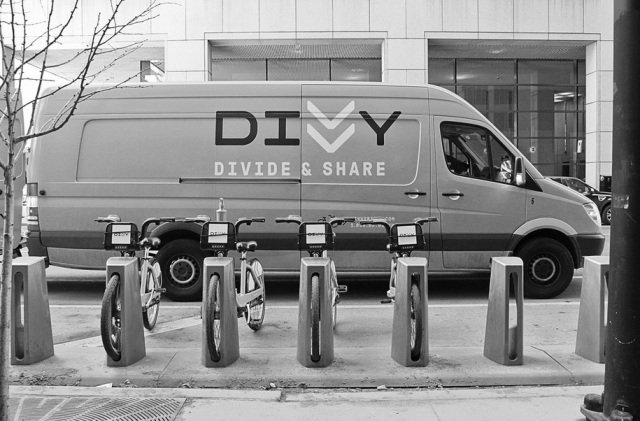Divvy Cruised To A Loss In Its First Year
By Chuck Sudo in News on Jun 3, 2014 3:30PM
Divvy Bikes have become a ubiquitous presence on Chicago’s streets (and sidewalks) but it will still cost taxpayers money in its first year. The bike-sharing program posted a preliminary operating loss of $148,000 in its first year. That amount seems like spitting on a hot griddle but with mayor Rahm Emanuel under pressure to cut costs across the board and hold the line on tax hikes it only gives critics of the program ammunition to call it a failure out of the blocks, especially as taxpayers are on the hook for the deficit.
It is worth stressing this operating loss is being called preliminary. The Chicago Department of Transportation believes Divvy could post an operating profit in 2013 but it’s dependent on settling billing disputes with the program’s manager, Alta Bicycle Share, Inc., and Bixi, the Montreal-based company that provides Divvy and other bike-sharing programs across the country with bicycles, kiosks and software. Bixi filed for bankruptcy in January, claiming $50 million in debt that needs to be restructures. CDOT has withheld $2.1 million in payments to Alta Bicycle Share related to delays in software updates and equipment deliveries. Alta, in turn, has not paid Bixi.
Under the contract between the City and Alta Bicycle Share, the Emanuel administration agreed to absorb 90 percent of the losses through this year, because of “uncertainty in adoption rates” with Divvy. Alta Bicycle Share’s losses are also capped at 10 percent of projected annual expenses beginning in the third year of the five-year deal. City records show the Emanuel administration has paid Alta $17.7 million since Divvy launched a year ago. Some transportation experts say the long-term success of Divvy depends on how locals will embrace the program.
Joseph Schwieterman, director of the Chaddick Institute for Metropolitan Development at DePaul University, told Crain’s Chicago Business the Divvy brand is off the charts, as indicated by the recent ride records set over the Memorial Day holiday. Leveraging sponsorships for the program, like the recent deal with Blue Cross Blue Shield, will also help Divvy’s long-term health. But as long as local residents can go to a bike shop and purchase a bicycle, it’s going to be hard for Divvy to expand beyond being a popular attraction for tourists.
